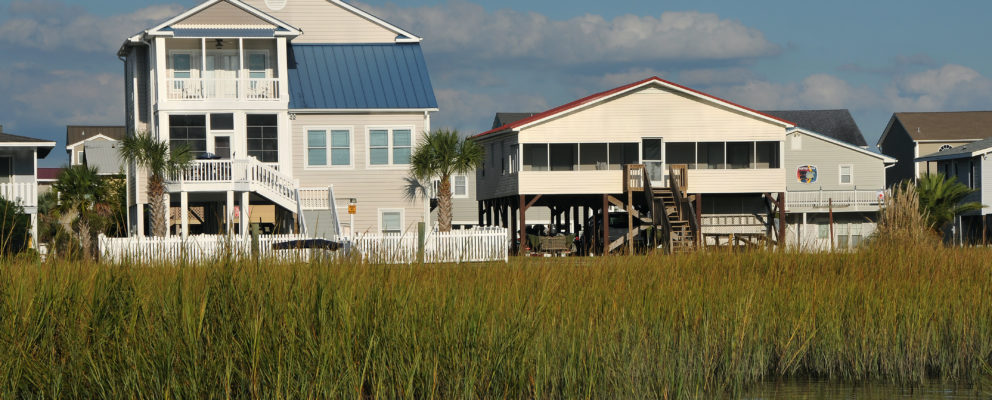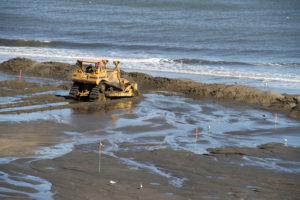CEnREP associate director receives grant from U.S. Army Corps of Engineers to study recreation values and benefits of beach replenishment projects
To the surfer, swimmer, or lounging vacationer, the beach is a mecca and a playground. But while millions of beach-goers visit our coastlines every year for fun in the sun, beaches also serve as convergence zones for a host of dynamic physical processes. Wind, wave action, storms, and sea level change all work to shape coastlines into patterns of accretion and erosion. When coastlines erode, that erosion threatens beachfront houses and the tourism industry overall. As the global climate continues to change throughout this century, coastal erosion rates are likely to accelerate, endangering more homes and structures. To combat this process and protect coastal buildings, sand is dredged offshore and spread across beaches to replace the sand lost to erosion. This process, known as beach replenishment, has been widely adopted along the U.S. coasts.
Roger von Haefen, professor of agricultural and resource economics at NC State and CEnREP associate director, was recently awarded a grant from the U.S. Army Corps of Engineers (USACE) to develop methods for monetizing the recreational values of beach replenishment projects. von Haefen’s project will address the need for original recreation valuation work for a number of sites across the Southeast, while providing a framework for expanding estimates to other sites for future assessments. The project will assess USACE National Economic Development (NED) Benefits associated with beach erosion control, including estimates of individual and aggregate economic value associated with beach recreation, potential changes in recreation value associated with infrastructure and management improvements, and how these changes translate into broader economic impacts.


